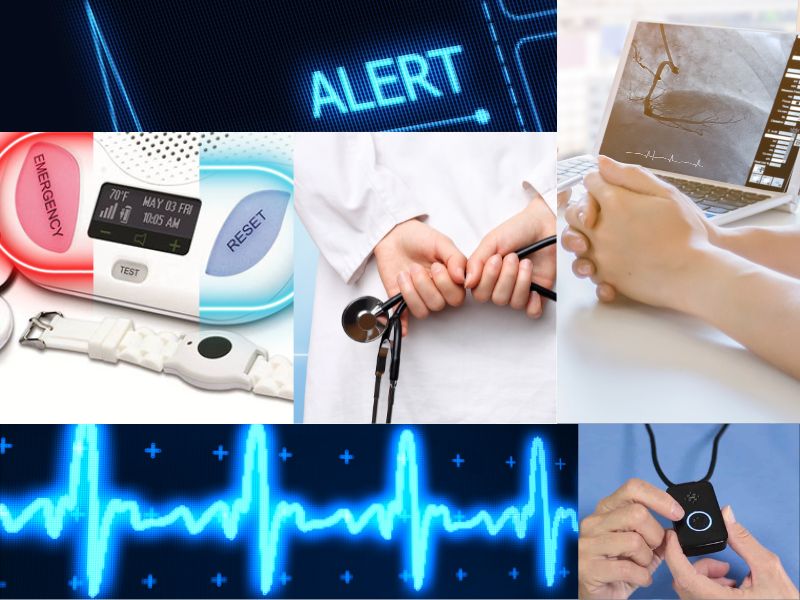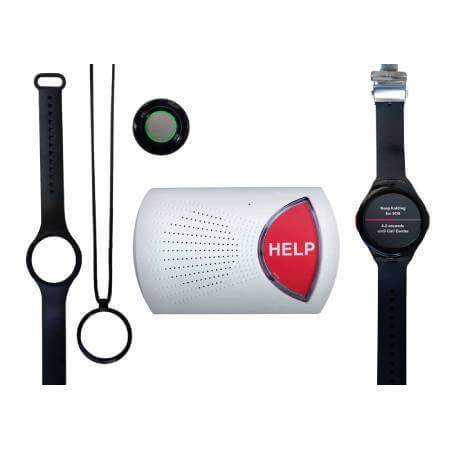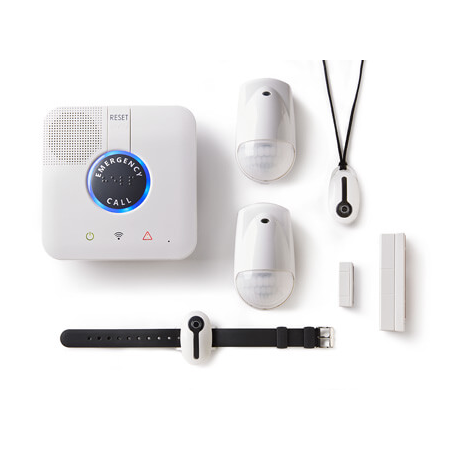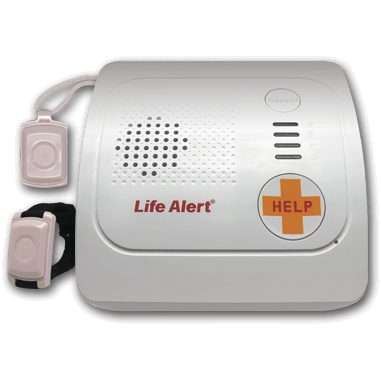Best Medical Alert Systems for Individuals with Hearing Impairments IN 2024
Medical alert systems, a pivotal lifeline in emergency situations, are designed to provide timely assistance and ensure the safety and well-being of individuals, particularly the vulnerable and elderly. For those with hearing impairments, these systems are more than just a tool—they are an essential means of communication in distress.
Brio House is an independent review site. We may earn money when you click links inside our site.
Medical alert systems, a pivotal lifeline in emergency situations, are designed to provide timely assistance and ensure the safety and well-being of individuals, particularly the vulnerable and elderly. For those with hearing impairments, these systems are more than just a tool—they are an essential means of communication in distress.
Hearing impairment presents a unique set of challenges in daily living, particularly in medical emergencies where swift and clear communication can be the difference between life and death. An individual with a hearing impairment may struggle to communicate their needs over the phone or not hear a traditional alarm. This raises the need for specialized tools that cater to their unique needs while not compromising their safety or independence.
This is where the best medical alert systems come into play. Designed with user-friendly interfaces and innovative technology, they consider the requirements of hearing-impaired individuals and ensure their specific needs are met. These systems typically include vibrating alerts, visual cues, text messages, and compatibility with hearing aids, creating a supportive environment that is mindful of their hearing impairment.
The role of these specialized medical alert systems is not just limited to safety. They also empower individuals with hearing impairments, enabling them to live independently and confidently, knowing that help is just a push of a button away. In a society where these individuals may often feel overlooked, having a system that caters specifically to their needs provides security, a sense of belonging, and inclusivity.
Let’s explore the best medical alert system for hearing impaired and its features, highlight top providers, and help you make an informed choice for yourself or your loved ones. Your safety and well-being are paramount, and with the right system, you can navigate life with confidence and peace of mind.
Understanding Medical Alert Systems
A medical alert system, also known as a Personal Emergency Response System (PERS), is designed to signal an emergency requiring urgent attention and summon emergency medical personnel.
Typically, they come in the form of a wearable pendant or bracelet with a button that, when pressed, connects the user to a response center. These systems provide an invaluable lifeline, allowing users to receive immediate assistance in an emergency.
These systems are equipped with GPS technology, allowing the monitoring center operator to accurately locate the user in an emergency. The system operates on a cellular network, meaning it can be used virtually anywhere, provided sufficient cell coverage exists.
How medical alert devices aid in health emergency situations
In a health emergency situation, every second counts. The primary function of medical alert devices is to ensure rapid communication between the user and emergency services. If a fall, heart attack, hearing aid being switched off, or any other emergency, the user can simply press the alert button on their device. This sends a signal to the response center, which will then immediately contact the user, assess the situation, and, if necessary, dispatch emergency responders.
The role of monitoring centers in medical alert systems
Monitoring centers play a crucial role in the effectiveness of medical alert systems. Staffed 24/7 by trained professionals, these centers respond to alerts sent from medical alert devices. The operators at the monitoring centers will attempt to communicate with the user to understand the situation better and will contact emergency services if required. Some centers also record the user’s medical history and important contacts to provide responders with critical information during an emergency.

Key Features of Medical Alert Systems Significant to People with Hearing Impairments
Medical alert systems offer numerous features that can benefit individuals with hearing impairments significantly. The main goal of these features is to ensure that these individuals can use the system effectively, particularly in an emergency situation. Here are some key features that are particularly significant for people with hearing impairments:
- Visual Alerts: Since traditional auditory alerts may not be effective for those with hearing impairments, visual alerts become crucial. Flashing lights can notify individuals of a triggered alarm or an incoming message.
- Vibration Alerts: Vibration alerts can be felt rather than heard, making them an effective notification method for individuals with hearing impairments. These alerts could be included in wearable devices like pendants or wristbands.
- Tactile Buttons: Large, easily identifiable buttons can make using the medical alert device easier, especially in an emergency.
- Integration with Hearing Aids: Most medical alert systems can directly connect with the user’s hearing aids. This feature ensures that alerts and communication from the monitoring center are heard as clearly as possible.
- Text Alerts: Text alerts sent to a paired mobile device can effectively notify hearing-impaired individuals about potential emergencies or important information.
- Two-way Communication: It allows users to communicate with emergency services or a monitoring center, even if their speech isn’t clearly heard.
- Visual Screen Prompts: This feature can guide users through using their system with visual cues, providing an easy-to-follow process that doesn’t rely on auditory communication.
- Bed Shaker: This device, when connected to an alert system, vibrates intensely to wake up an individual in case of an emergency during sleep.
Remember, the most effective medical alert system for a person with hearing impairments will depend on their specific needs, the severity of their hearing loss, and their comfort with technology.
Factors to Consider When Choosing the Best Medical Alert System
Individual Needs
Understanding the needs of hearing-impaired seniors is crucial when selecting the best medical alert company. Unlike individuals with normal hearing, those with hearing impairments may be unable to hear alarms or communicate effectively with the monitoring center.
Systems with visual alerts, vibrating alarms, and text-based communication options suit this demographic.
Costs
The cost of a medical alert system is often a significant factor in the decision-making process. Monthly fees can vary widely between providers, and in addition to this, users should consider costs related to equipment and potential activation fees.
It’s also worth noting that some medical alert system providers offer discounts for annual or semi-annual payments. Always ask about hidden fees and ensure you understand the total cost before deciding.
Type of the System
The type of system that best suits an individual’s lifestyle is also an important consideration. At-home systems rely on a landline or cellular connection within the home and are ideal for individuals who spend most of their time at home.
On-the-go systems, however, are designed for active seniors and use cellular networks and GPS tracking to offer protection anywhere. Assessing the user’s routine, mobility, and comfort level with technology is essential before selecting an at-home or on-the-go system.
Integration of Smart Devices
Integrating smart devices into a mobile medical alert system has significantly enhanced their functionality. These devices can automate various tasks and provide added convenience for users.
For example, smart medical alert systems can sync with smart home devices, enabling users to control appliances, lights, or thermostats through their system. They can also work with smartphones, allowing users to contact the monitoring center through an app.
Comprehensive System
A comprehensive system that goes beyond basic emergency response is vital. Features like voice-activated wall buttons allow medical alert system users to call for help without reaching their pendant or wristband, while a caregiver app enables family members or caregivers to monitor the user’s status and receive alerts.
Medication reminders are another handy feature, ensuring the user takes their medication on time and helping to prevent potential health issues. Choosing a system that offers these features can provide a layer of safety and convenience, making it easier for hearing-impaired seniors to live independently and confidently.

Are There Any Free Medical Alert Systems Available?
While there are some programs and organizations that may offer free or low-cost medical alert systems to qualifying individuals, most medical alert systems require a monthly fee. The cost can vary depending on the provider and the features of the system. It’s important to consider the cost and value of the system when choosing a medical alert provider.
What are the Best Medical Alert Systems for Individuals with Hearing Impairments in 2024?

Reviews: The Top Medical Alert System Companies in 2024
1. Bay Alarm Medical

Bay Alarm Medical
Our Rating:

5.0
Bay Alarm Medical is a well-established company in the field of medical alert systems, providing services designed to give seniors and their families peace of mind.
Key Features for Hearing Impaired:
- 24/7 Professional Monitoring: Ensures quick assistance whenever an emergency arises.
- Wall-Mounted Button: Large, easy-to-press buttons can be placed throughout the home.
- GPS Help Button: Provides location details to help pinpoint the user’s location.
- Battery Backup: Ensures the system continues to operate during power outages.
- Optional Fall Detection: Automatically calls for help if a fall is detected.
PROS
CONS
People’s Review: Many users have praised the system’s reliability, prompt response times, and friendly customer service.
2. Medical Guardian

Medical Guardian
Our Rating:

4.7
Medical Guardian offers an extensive range of medical alert systems suitable for various needs and lifestyles.
Key Features for Hearing Impaired:
- Voice-Activated Wall Button: Allows users to call for help without physically pressing the button.
- HD Speaker: Ensures clear two-way communication.
- Water-Resistant Pendant: Can be worn in the shower, where many falls occur.
- Long-Range Pendants: Devices work up to 1,300 feet away from the base unit.
- Lifetime Warranty: Covers all equipment malfunctions.
PROS
CONS
People’s Review: Many customers have highlighted the helpful customer service, reliability of the equipment, and the good range of the in-home systems.
3. Life Alert

Life Alert
Our Rating:

4.6
Life Alert is one of the original companies in the medical alert industry and offers a variety of systems to cater to different needs.
Key Features for Hearing Impaired:
- Large, Easy-to-Press Buttons: Make calling for help simple.
- Two-Way Speaker: Allows communication with the monitoring center.
- Waterproof Pendant and Wristband: Can be worn in the shower.
- Long Battery Life: Systems have batteries lasting up to 7 years.
- Mobile App: Allows caregivers to monitor the user’s status.
PROS
CONS
People’s Review: Users have praised the system’s reliability and the battery life’s longevity. Some users, however, have been dissatisfied with the long-term contract requirement.
4. LifeStation

LifeStation
Our Rating:

4.7
LifeStation offers reliable and easy-to-use medical alert systems for seniors.
Key Features for Hearing Impaired:
- Siren Alerts: Loud sirens can alert hard-of-hearing users.
- Two-Way Voice Communication: Provides direct communication with the monitoring center.
- Water-Resistant Pendant: Can be worn in risky areas like bathrooms.
- GPS Mobile Alert System: Protects home and on the go.
- 24/7 Professional Monitoring: Help is always available when needed.
PROS
CONS
People’s Review: Users have reported that LifeStation’s systems are easy to set up and use, and that the company offers excellent customer service.
5. Alert1

Alert1
Our Rating:

4.6
Alert1 provides affordable and user-friendly medical alert systems with a focus on the needs of seniors.
Key Features for Hearing Impaired:
- Loud and Clear Two-Way Voice Communication: Even hard-of-hearing users can communicate.
- Large Emergency Button: Provides easy access to help.
- Wireless Connectivity: No need for a landline.
- Fall Detection: Automatically detects falls and sends an alert.
- GPS Technology: Enables users to call for help from any location.
PROS
CONS
People’s Review: Many customers appreciate the affordability of Alert1’s systems and the fast response times. Some users, however, with the in-home system had a better range.
Affordable Options for the Best Medical Alert Systems
While the safety and peace of mind provided by top medical alert systems are invaluable, the cost is significant for many seniors and their families. Fortunately, several affordable medical alert system options exist in the market. MobileHelp and LifeFone offer economical plans without sacrificing essential features like two-way communication, fall detection, and GPS tracking.
Other affordable companies include Bay Alarm Medical and Medical Guardian, which offer value for money through their comprehensive and versatile systems. It’s important to remember that an affordable system shouldn’t mean compromising on safety features and service quality.
When selecting a medical alert system, a price lock guarantee is an important feature to look for. This guarantee ensures your fees will not increase for the life of your service, protecting you from unexpected cost hikes. This can significantly affect the system’s long-term affordability, providing users with a sense of financial security.
Free activation is another element that can impact overall costs. Some medical alert companies charge a one-time activation fee when you start using their service, which can add to the system’s initial cost. However, several providers waive this fee as part of their commitment to affordability. Looking for providers offering free activation can help lower the initial cost, making the system more affordable.
Final Thought
The right medical alert system can profoundly impact the lives of hearing-impaired individuals. It can significantly enhance their safety, providing peace of mind not only to them but also to their families and caregivers. A system that caters to their unique needs—such as having loud alarms, visual alerts, or integrating with hearing aids—can bridge the communication gap during emergencies, potentially saving lives.
There’s no one-size-fits-all regarding medical alert systems, especially for hearing-impaired individuals. Therefore, it’s crucial to consider personal needs, lifestyle, budget, and the specific features that would benefit the user the most. By comparing the offerings of various medical alert companies, one can select the system that best suits their needs.
In conclusion, personal safety and autonomy are indispensable for hearing-impaired seniors. The right medical alert system can play a pivotal role in preserving these aspects, allowing them to live their lives confidently, independently, and with the assurance that help is just a button press away. We encourage you to explore, research, and choose the best medical alert system for you or your loved one because everyone deserves to feel safe and secure in their home.

